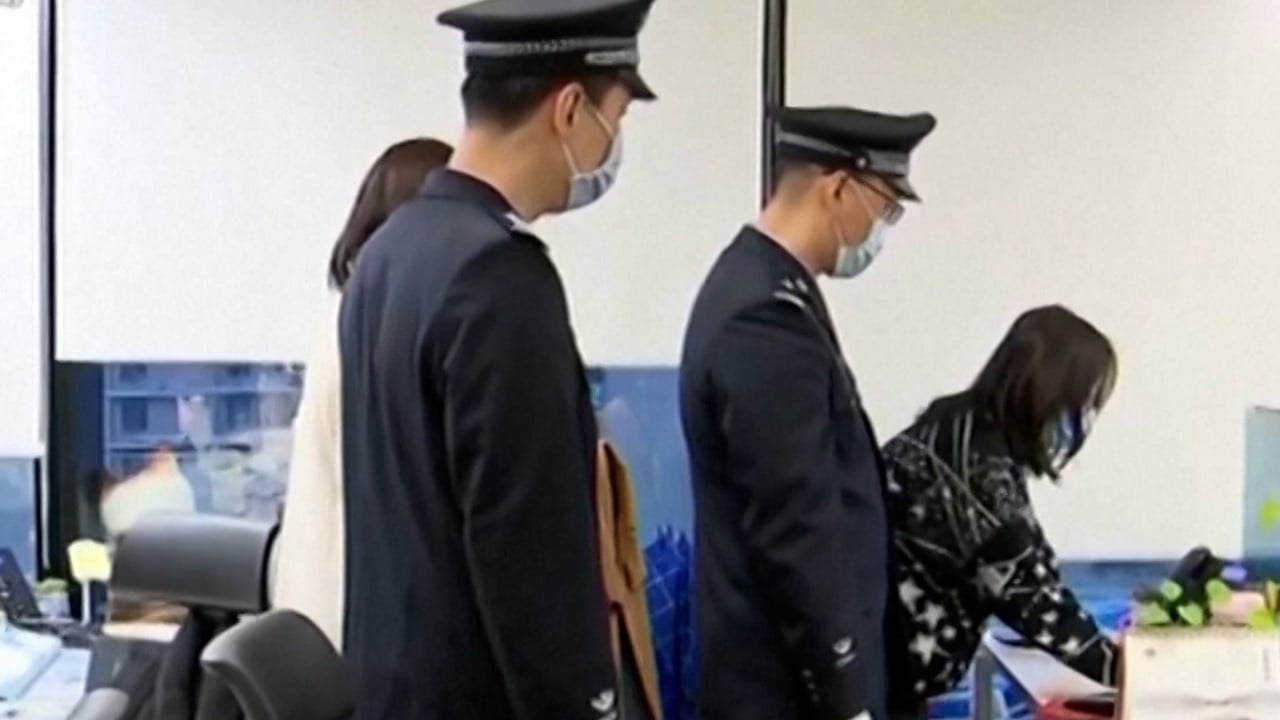
British firms in China ‘wait and see’ on new investment as lack of trust clouds outlook
- Annual position paper from British Chamber of Commerce in China points to uncertainty and a lack of trust and clarity on regulations
- Among surveyed businesses, 70 per cent were adopting a ‘wait-and-see approach’ to understand what specific policy support would be put in place
British businesses have urged Chinese officials to timely clarify their policy intentions and boundaries, and to enhance communications with investors, as uncertainties and unpredictability have forced most to take a “wait-and-see approach” on new investments in China.
The annual position paper from the British Chamber of Commerce in China, published on Tuesday, pointed to uncertainty and a lack of trust and clarity on regulations as the key challenges to foreign enterprises in China.
A total of 70 per cent of the businesses surveyed in April said they are adopting a “wait-and-see approach” to understand what specific policy support would be put in place and to understand how the government would act to revitalise and stimulate the market, according to the report.
A previous sentiment survey by the British chamber at the end of last year also showed that 42 per cent of British businesses reported a pessimistic outlook for the Chinese market, surpassing 10 per cent for the first time in the history of the survey.
To catch foreign investors, China casts mega projects with great potential
“A perception of an increasingly unpredictable business environment, coupled with challenges posed by rising geopolitical tensions, a slowing global economy, increased prioritisation of self-sufficiency and shifting investor perceptions, all serve to cloud short- and long-term outlooks,” the report said.
As part of the survey, the chamber also conducted roundtable discussions and interviews with British companies from across China in February and March.
Trade between Britain and China was worth £111 billion (US$138 billion) last year, according to the British National Bureau of Statistics, making China the UK’s fourth-largest trading partner.
I think it’s fair to say the way in which the policy changed actually created a level of additional uncertainty
The paper also highlighted that Beijing’s strict zero-Covid policy, and its subsequent “abrupt cancellation” late last year, reinforced the view of China being an unpredictable market.
“I think it’s fair to say the way in which the policy changed actually created a level of additional uncertainty,” chamber chair Julian MacCormac said in Beijing on Tuesday.
“There are often unexpected changes to the business environment, which makes companies nervous.”
“Covid controls have been lifted, optimism is returning again. It isn’t translating into action just yet because there is still this pervading uncertainty in the market,” said Alexandra Hirst, the chamber’s manager of policy and advocacy.
“Covid was a huge issue for British businesses, but there are still underlying challenges which need to be addressed for that optimism to translate.”
Overall, though, 76 per cent of the member companies surveyed said they felt more optimistic about the outlook in 2023 amid Beijing’s push to attract more foreign investment, although the recent raids on foreign-funded consultancy firms and a ban on US chip maker Micron on national security grounds have raised concerns.
Following the increasing crackdown on financial institutions and due diligence firms in recent months, the chamber urged Beijing to provide greater clarity for foreign business.
Earlier, corporate due diligence firm Mintz Group closed its China office in Beijing after five Chinese staff were detained by the police over “suspected illegal business operations”.
“When something happens that isn’t necessarily fully explained, where businesses aren’t necessarily consulted, and it’s not clear where the boundaries are in terms of where a company operates, that creates an environment of uncertainty,” MacCormac added.
While the chamber welcomed the emphasis on foreign investment during the “two sessions” earlier this year, a focus on national security and self-reliance has dampened business confidence and introduced concerns about the long-term prospects for international business in China.
The ideas centering on security and self-reliance need to be balanced against the message of welcoming foreign companies to invest in China, because I think there is some nervousness about that
“The ideas centering on security and self-reliance need to be balanced against the message of welcoming foreign companies to invest in China, because I think there is some nervousness about that,” MacCormac said.
“On one hand you’re saying you want to be secure and self-reliant. Second, you also want the foreign companies to come to China. What does it mean for my future as a company if the intention is to focus on self-reliance and security?”
The new report detailed current challenges faced by the financial services, energy, healthcare, consumer goods, education, architecture, construction and engineering and automotive industries, and gave recommendations on how the Chinese government could strengthen trust and restore confidence in various sectors.
The chamber urged authorities to continue to reduce its negative list for foreign investment, level the playing field for foreign firms and provide clear regulations to reduce compliance uncertainty for businesses navigating the changing regulatory environment.



